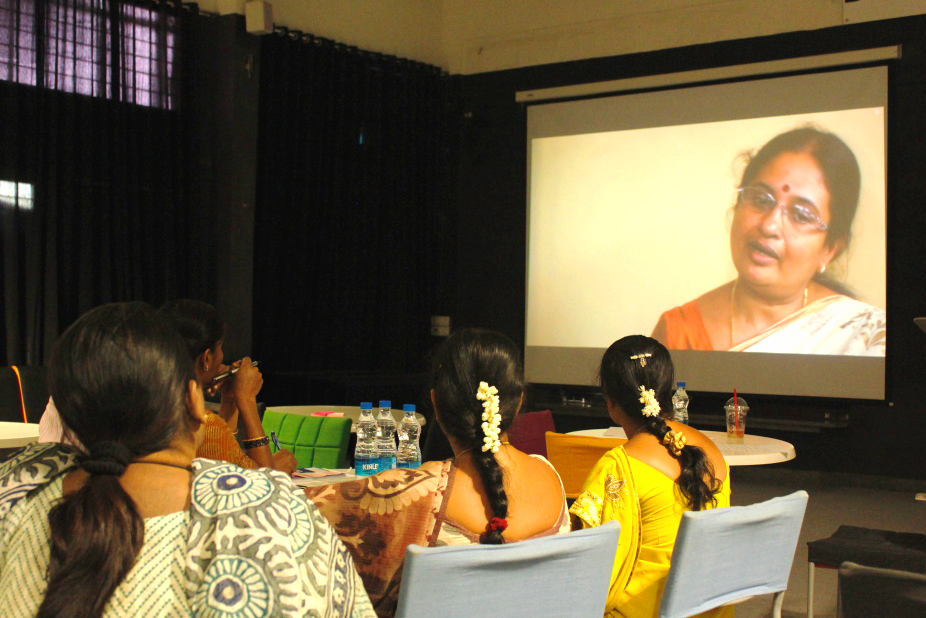



Innovating on the business model of a self-help group
MYTHRI - SANITARY NAPKIN PROJECT
As Design Strategist and Researcher, I collaborated to enterprise design knowledge to create social value, and innovate on the business model of Mythri, an all women’s Self Help Group (SHG) based in rural Hoskote (India).
PROJECT DETAILS
Project Experience: Jun. 2012 - Aug. 2012, Bengaluru, India
My Role: Design Researcher, Design Strategist
Contribution: Design Strategy, Design Research, Social Innovation, Healthcare, Entrepreneurship
Collaboration: Mythri (Client), Shristi Mahila Okkutta, Manipal Foundation, Rotary Indiranagar Bangalore Trust
Team: Bridget Sheerin
Project Copyright Manipal Foundation. All rights reserved.
CONTEXT
A study from UNICEF revealed that 1 out of 3 girls in South Asia knew nothing about menstruation prior to getting it while 10% of girls in India believe that menstruation is a disease (WaterAid 2013, Menstrual Hygiene Matters).
Mythri is an all-women’s self help group (SHG) founded in 2011 to promote hygienic and cost effective menstrual health practices by manufacturing sanitary napkins in rural areas of Hoskote, India. Priced at Rs. 22 for a pack of 8 sanitary napkins, the team produces natural and quality products at a fraction of the cost of most commercial brands. Mythri currently sells the sanitary napkins to rural girls to prevent them from dropping out of school because of menstruation stigma, and also to local women at subsidized rates.
CHALLENGE
The project is funded and mentored by the Manipal Foundation as a part of their women’s empowerment and healthcare initiatives. To ensure the future sustainability of the enterprise, Manipal Foundation founded the SHG, imparted training to the women as well as established links to raw material suppliers with the hope of converting it to a self-sustaining and cost effective business venture in 3 years. As a three month on-site Design Researcher in Bengaluru (India) we were commissioned by Manipal Foundation to help convert Mythri into an economically viable enterprise and to motivate and create a sense of ownership amongst the local women.
ACTION
Our project focussed on researchingchallenges and resulting opportunities as a means to better understand local entrepreneurial practices and value added supply chainsthat create social value within these communities. We gathered research, interviewed stakeholders and applied Design Strategy to a two-hour workshop with design experts, entrepreneurs, artists, venture capitalists, activists, business leaders and not-for-profit agents. During the workshop, we utilized design methods such as rapid ideation, future storytelling and scenario building to innovate on the Mythri business model.
OUTCOME
We proposed the creation of a Gratitude Initiative at Mythri, an opportunity for creating a culture of feeling appreciated and secure, working to develop individual and collective dignity, empowerment, pride, and social mobility amongst the members.









